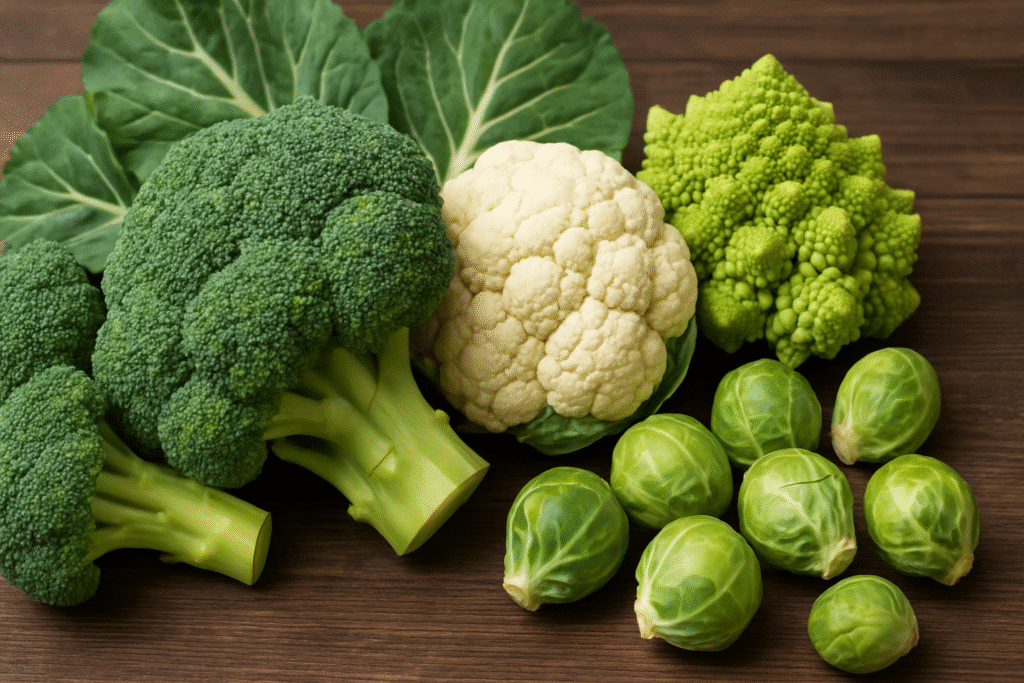You’ve heard it a thousand times: “Eat your vegetables.”
Broccoli, kale, spinach—pile them high, blend them into smoothies, steam them on the side. It’s been drilled into us that veggies = health.
But what if that’s not the full story?

What if some of the most celebrated “superfoods” are actually loaded with compounds that irritate your gut, disrupt hormones, and block nutrient absorption?
That’s why I stopped eating broccoli—and honestly, I haven’t looked back.
Let’s break down what’s really hiding in your greens… and why animal-based foods don’t come with the same baggage.
The Other Side of Veggies: Natural Defense Chemicals
Plants don’t want to be eaten. They can’t run or bite, so they protect themselves chemically.
Broccoli is a brassica—a member of the cruciferous vegetable family. These plants are loaded with compounds called glucosinolates, which convert into isothiocyanates when chewed or cooked.
The most famous one? Sulforaphane.
It’s often praised for “fighting cancer,” but let’s look at what else it does:
- Blocks iodine uptake, which can affect thyroid function
- Triggers glutathione depletion, your body’s master antioxidant
- Irritates the gut lining and may increase permeability (aka “leaky gut”)
- Inhibits certain detox enzymes in the liver
Sure, in petri dishes and mouse models, sulforaphane looks beneficial. But in real humans, especially when you’re already eating clean and ancestrally—those stressors may do more harm than good.
Oxalates, Lectins, and Other Plant Landmines
It’s not just broccoli. Other veggies come with their own baggage:
- Spinach, beets, and chard → sky-high oxalates, which can lead to kidney stones and bind to calcium
- Beans and legumes → full of lectins and phytic acid, which block zinc, iron, and magnesium
- Nightshades (tomatoes, peppers, potatoes) → contain alkaloids that can aggravate joints and nerves
- Whole grains → not just a carb bomb, but packed with antinutrients that can wear down gut health over time
You don’t see this stuff in the USDA food pyramid, do you?
But Don’t We Need Plants for Antioxidants?
Actually… no.
Your body has its own internal antioxidant system (think glutathione, catalase, SOD). These are way more effective than anything you’ll get from broccoli or blueberries.
And guess what supports that system best?
Red meat, organs, and saturated animal fats.
They supply the raw materials—like B12, heme iron, retinol, and amino acids—that keep your cellular repair humming.
And What About Fiber?
Broccoli is often touted as a great “clean-out-your-system” food. But as we’ve covered before—fiber isn’t essential.
In fact, many people find they digest better, have less gas and bloating, and more predictable bowel movements without fibrous vegetables.
What I Eat Instead
Instead of trying to “detox” with vegetables, I focus on foods that don’t need detoxing to begin with:
- Grass-fed beef and organs
- Raw milk (if tolerated)
- Fruit and honey (clean carbs without the chemicals)
- Eggs, wild-caught fish, and animal fats like tallow or ghee
These foods don’t fight against your biology—they fuel it.
Final Thoughts: Plants Aren’t Evil… But They’re Not Perfect
Look, I’m not saying broccoli is poison. But I am saying: it’s not a magical health food either.
If you’re thriving on it—great. But if you have digestive issues, thyroid problems, fatigue, joint pain, or autoimmune flares, it might be time to take a break and see how your body responds.
Don’t be afraid to challenge the mainstream narrative.
You don’t need vegetables to be healthy.
And in some cases, cutting them out might be the best thing you’ve ever done for your gut, brain, and energy.
Leave a Reply